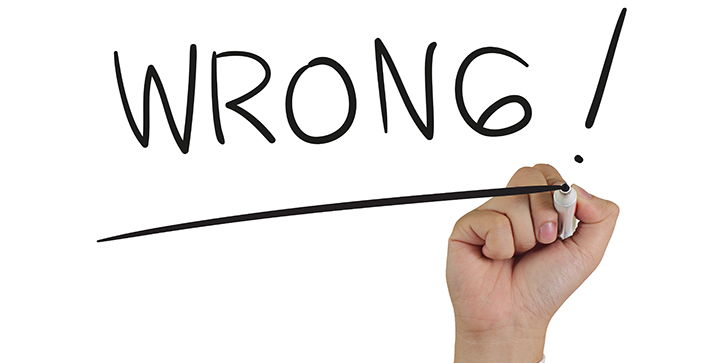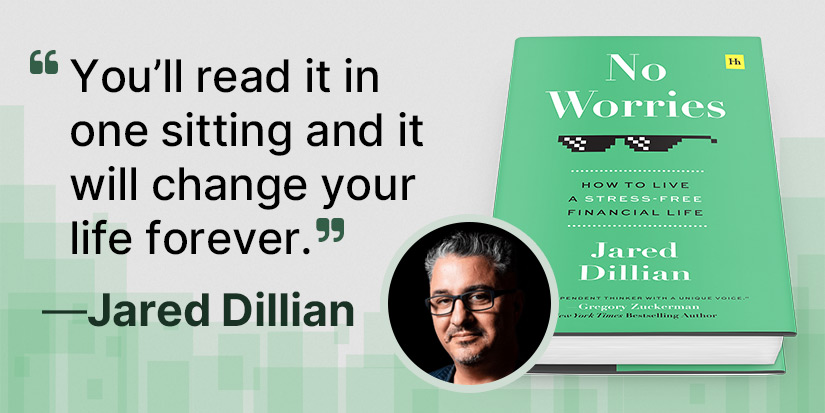
Wrongology
-
 Jared Dillian
Jared Dillian
- |
- May 12, 2016
- |
- Comments
I spend some time on finance Twitter. Probably not as much as I should, actually. But my brain is a slow-twitch muscle. I’m very deliberate, very methodical, and I’m not really into the ripostes and the quick wit that makes one popular on Twitter. But the one thing that has always struck me about finance Twitter is the amount of time and energy that people spend pointing out when people are wrong.
You might think that being wrong is a capital offense. Which is funny, because in this business, people are wrong all the time. All the time. You stop yourself out (or you don’t) and move on. But the funny thing that happens in finance when it goes public is that people experience shame when they are wrong. In fact, most people would rather lose money privately than get caught being wrong publicly.
I have never understood this. Losing money, to me, is the worst thing in the world. If I say something in The 10th Man or on Twitter or on TV and I am proven wrong, what is the big deal? Stop yourself out, mea culpa, move on.
Nobody bats 1.000. So why do we crush people all the time for being wrong? It is like a financial national pastime.
Especially when you consider that most of the really good traders aren’t even wrong half the time. They’re wrong 80 percent of the time, or more.
I’ve Seen a Little on…TV
I am not a big consumer of financial media. That includes not just television, but newspapers, blogs, anything. I get most of my information in the form of market data. Charts. And I do read raw news—but never opinion. I keep the signal-to-noise ratio high.
The folks on TV have a reputation for being wrong all the time. I am sympathetic to that. You have to be cognizant of not just market sentiment, but your contribution to it. If you are on television frequently, this is hard. Almost impossible. I have been on TV a few times, but I am never excited about it. All news is focused on the here, the now—it is not forward looking. I spend my time thinking about the future. But the future, like, emerging markets are getting better, for example, is not as sexy as the here and the now, which is emerging markets are crashing.
There is a chart going around that plots out all the times CNBC has had their “Markets In Turmoil” special on a chart of the S&P 500—always at the lows.
People read a lot of financial journalism while forgetting that the whole profession of journalism has zero predictive value. Actually, it has negative predictive value. Guys like Woody Dorsey have spent their entire careers studying why the press is always a contra-indicator. It’s a proven fact.
Predictive Power
The number of people who have predictive power in the markets is very, very small. Kiril Sokoloff, I think, has the highest batting average, but he also throws a lot of spaghetti at the wall (his subscription service is too expensive for all but the wealthiest investors, but it is probably worth the money). I hope you would include me on that short list.
Most people have a hobby horse, and they ride it as long as possible. I love Fred Hickey, enjoy reading his stuff, but he has been bearish tech and bullish gold as long as I’ve been following him, which is to say since 1999.
That’s why the Ira Sohn conference is such a big deal. The Ira Sohn conference brings together the people who have been the most successful at putting their money where their mouth is. Most people who have predictive power don’t make a living selling their opinions. They instead make a living trading. But not always. Coming up with ideas and managing risk are actually two different skills. I am better at managing risk than most, but I am still pretty bad at it compared to most investors, which is why I sell my ideas (I have more fun doing this, anyway).
A lot of great investors have no predictive power at all. They are not futuristic thinkers. They are really good at reading charts and trading off of it.
One of my Facebook friends once told me that he thought I had the ability to “see around corners.” One of the best compliments I have ever received.
I’m from the future, and Canada is doomed.
Mea Culpa
Like what you're reading?
Get this free newsletter in your inbox every Thursday! Read our privacy policy here.
But I’m human, and more importantly, I realize that I’m human, and that I’m going to be wrong, so I don’t fear embarrassment like most people do. So when you’re not afraid of being embarrassed, you’re willing to say out-of-consensus things. Which is the whole point of this newsletter.
I hope you have enjoyed it so far.
subscribers@mauldineconomics.com
Tags
Suggested Reading...
|
|

 Jared Dillian
Jared Dillian

